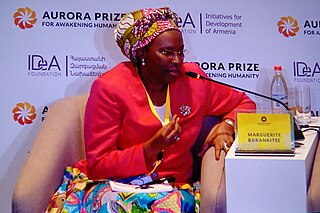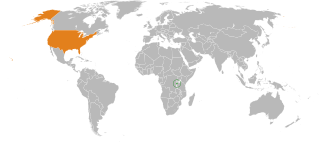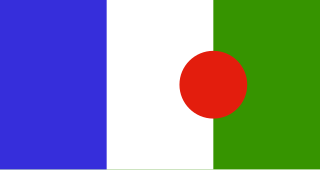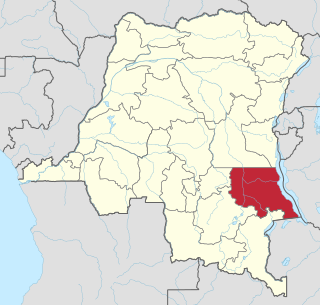
Demographic features of the population of Burundi include population density,ethnicity,education level,health of the populace,economic status,religious affiliations and other aspects.

Burundi originated in the 16th century as a small kingdom in the African Great Lakes region. After European contact,it was united with the Kingdom of Rwanda,becoming the colony of Ruanda-Urundi - first colonised by Germany and then by Belgium. The colony gained independence in 1962,and split once again into Rwanda and Burundi. It is one of the few countries in Africa to be a direct territorial continuation of a pre-colonial era African state.
Human occupation of Rwanda is thought to have begun shortly after the last ice age. By the 11th century,the inhabitants had organized into a number of kingdoms. In the 19th century,Mwami (king) Rwabugiri of the Kingdom of Rwanda conducted a decades-long process of military conquest and administrative consolidation that resulted in the kingdom coming to control most of what is now Rwanda. The colonial powers,Germany and Belgium,allied with the Rwandan court.
The Hutu,also known as the Abahutu,are a Bantu ethnic or social group which is native to the African Great Lakes region. They mainly live in Rwanda,Burundi and the eastern Democratic Republic of the Congo,where they form one of the principal ethnic groups alongside the Tutsi and the Great Lakes Twa.

The Burundian Civil War was a civil war in Burundi lasting from 1993 to 2005. The civil war was the result of longstanding ethnic divisions between the Hutu and the Tutsi ethnic groups. The conflict began following the first multi-party elections in the country since its independence from Belgium in 1962,and is seen as formally ending with the swearing-in of President Pierre Nkurunziza in August 2005. Children were widely used by both sides in the war. The estimated death toll stands at 300,000.

Marguerite (Maggie) Barankitse is a Burundian humanitarian activist who works to improve the welfare of children and challenge ethnic discrimination in Burundi. After rescuing 25 children from a massacre,she was forced to witness the conflicts between the Hutu and Tutsi in her country in 1993. She established Maison Shalom,a shelter that provided access to healthcare,education,and culture to over 20,000 orphan children in need. Because she protested against a third term for President Pierre Nkurunziza,she lives in exile.

In 1962,the United States established diplomatic relations with Burundi when it gained its independence from Belgium. Following independence,the country experienced political assassinations,ethnic violence,and cyclical periods of armed conflict;several governments were installed through coups. The 2000 Arusha Peace and Reconciliation Agreement provided a negotiated settlement framework that,along with later ceasefire agreements,led to the end of the 1993-2006 civil war. President Pierre Nkurunziza's decision to seek a third presidential term in 2015 sparked protests in the capital and was followed by a failed coup d’état. The resultant violence and political and economic crises resulted in massive refugee flows to neighboring countries. The United States Embassy in Burundi's policy states:"The United States supports the achievement of long-term stability and prosperity in Burundi through broad,inclusive reconciliation;humanitarian assistance;economic growth;and the promotion of political openness and expansion of democratic freedoms. The United States supports the East African Community (EAC)-facilitated Burundian dialogue and other conflict resolution efforts within Burundi. The United States seeks to facilitate Burundi's deeper integration into regional and international markets,as a means to promote sustainable economic development."

The Indigenous Peoples of Africa Co-ordinating Committee (IPACC) was founded in 1997. It is one of the main trans-national network organizations recognised as a representative of African indigenous peoples in dialogues with governments and bodies such as the UN. As of 2008,IPACC was composed of 150 member organisations in 21 African countries.

Burundi,officially the Republic of Burundi,is a landlocked country in the Great Rift Valley at the junction between the African Great Lakes region and East Africa. It is bordered by Rwanda to the north,Tanzania to the east and southeast,and the Democratic Republic of the Congo to the west;Lake Tanganyika lies along its southwestern border. The capital cities are Gitega and Bujumbura,the latter being the country's largest city.

Bwindi Community Hospital was founded in 2003 by Scott and Carol Kellermann. It began as an outreach clinic under a tree,and has grown into a 112-bed hospital providing health care and health education services to a population of over 100,000 people in Uganda. The hospital began with a special mission to help the Batwa pygmies who were displaced from the Bwindi Impenetrable Forest after it was made a National Park in 1991. Since leaving the forest many Batwa have lived in extreme poverty and are affected by the health issues that poverty brings.

Ethnic groups in Burundi include the three main indigenous groups of Hutu,Tutsi and Twa that have largely been emphasized in the study of the country's history due to their role in shaping it through conflict and consolidation. Burundi's ethnic make-up is similar to that of neighboring Rwanda. Additionally,recent immigration has also contributed to Burundi's ethnic diversity. Throughout the country's history,the relation between the ethnic groups has varied,largely depending on internal political,economic and social factors and also external factors such as colonialism. The pre-colonial era,despite having divisions between the three groups,saw greater ethnic cohesion and fluidity dependent on socioeconomic factors. During the colonial period under German and then Belgian rule,ethnic groups in Burundi experienced greater stratifications and solidification through biological arguments separating the groups and indirect colonial rule that increased group tensions. The post-independence Burundi has experienced recurring inter-ethnic violence especially in the political arena that has,in turn,spilled over to society at large leading to many casualties throughout the decades. The Arusha Agreement served to end the decades-long ethnic tensions,and the Burundian government has stated commitment to creating ethnic cohesion in the country since,yet recent waves of violence and controversies under the Pierre Nkurunziza leadership have worried some experts of potential resurfacing of ethnic violence. Given the changing nature of ethnicity and ethnic relations in the country,many scholars have approached the topic theoretically to come up with primordial,constructivist and mixed arguments or explanations on ethnicity in Burundi.

Burundi is one of the poor African countries with heavy burden of both communicable,maternal,neonatal,nutritional,and non-communicable diseases. The burden of communicable diseases generally outweighs the burden of other diseases. Mothers and children are among those most vulnerable to this burden.

The Twa are a group of indigenous African Pygmy tribes.

The Great Lakes Twa,also known as Batwa,Abatwa or Ge-Sera,are a Bantu ethnic group native to the African Great Lakes region on the border of Central and East Africa. As an indigenous pygmy people,the Twa are generally assumed to be the oldest surviving population of the Great Lakes region. Current populations of Great Lakes Twa people live in the states of Rwanda,Burundi,Uganda and the eastern portion of the Democratic Republic of Congo. In 2000 they numbered approximately 80,000 people,making them a significant minority group in these countries. The largest population of Twa is located in Burundi estimated in 2008 at 78,071 people.
Echuya Batwa,commonly known as pygmies,are an endangered group of people around Echuya Forest Reserve in Kisoro and Kabale Districts of South-Western Uganda. The Echuya is located in the Albertine Rift region recognized as an important eco-region. The Batwa are believed to have migrated from the Ituri Forest of the Democratic Republic of Congo in search of wild animals to hunt,hence the name Kisoro,literally meaning "the area occupied by wild animals". The Batwa live in small huts mainly made from sticks and grass,and number 6,700 per a 2014 estimate by the Uganda Bureau of Statistics.

Parliamentary elections were held in Burundi on 29 June 2015. The vote had been initially set for 5 June 2015,alongside local elections,but it was delayed due to unrest. Indirect elections to the Senate occurred on 24 July.

The Batwa–Luba clashes were a series of clashes in the Democratic Republic of the Congo (DRC) between the Pygmy Batwa people,and the Luba people that began in 2013 and ended in 2018.

General elections were held in Burundi on 20 May 2020 to elect both the president and the National Assembly. Évariste Ndayishimiye of the ruling CNDD–FDD was elected president with 71% of the vote. In the National Assembly elections,the CNDD–FDD won 72 of the 100 elected seats.
Immaculate Ndabaneze was a Minister in Burundi. She served as the Minister of Commerce,Transport,Industry and Tourism.













